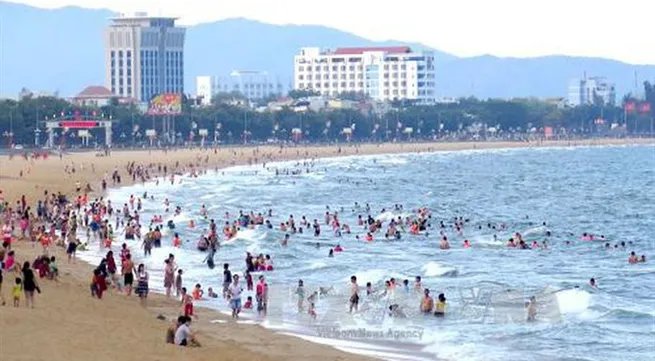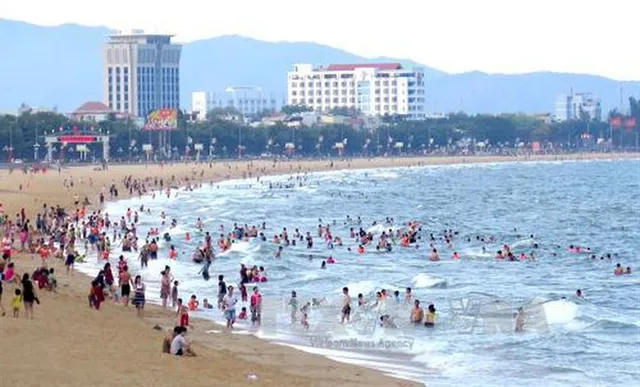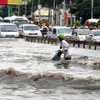Regional planning for Bình Định Province approved


|
| The coast of Quy Nhơn in the central province of Bình Định is a popular tourist attraction. |
HÀ NỘI — The central province of Bình Định expects to develop 17 urban areas by 2025 and 22 urban areas by 2035, with urban land of between 13,000 – 16,500 ha.
This is part of the regional plan for the province that deputy Prime Minister Trịnh Đình Dũng approved late last month.
The plan, developed by Việt Nam Institute for Urban and Rural Planning under the Construction Ministry, highlighted Bình Định as one of five provinces in the central key economic zone. The province has an important position economically and geographically as it is on the axis of the North-South expressway and railway, is home to Phù Cát Airport and is the nearest gate to the East Sea for Việt Nam’s Central Highland region, southern region of Lao, northeastern region of Cambodia and northeastern region of Thailand through National Highway No 19 and Quy Nhơn International Seaport.
The plan was made for an area of 6,050 sq.km, or the whole area of the province with 11 administrative areas. Currently, the province has 13 urban areas including four major ones – Quy Nhơn City, An Nhơn Town, Bồng Sơn Town, Phú Phong Town – and smaller district-leveled towns.
In 2016, the province had a population of 1.52 million people and expected this to increase to 1.7 million people in 2035. The urbanisation rate is also forecast to reach 50 per cent by 2035.
Under the plan, Quy Nhơn City is expected to become a national marine economic hub offering services, a seaport, industrial production and tourism. Services and the seaport are considered key factors driving growth of urban areas in the province, as well as the south central and Central Highlands regions of Việt Nam.
Nhơn Hội Economic Zone is considered an important engine for the province’s socio-economic development.
The province also plans to develop three tourism hubs in Quy Nhơn City, Tây Sơn Town, Hoài Nhơn Town.
Phương Mai-Núi Bà Tourism Area, stretching over 2,500 ha, will become a national tourism area featuring sea and island ecology and cultural values of Bình Định.
In major urban areas like Quy Nhơn City, An Nhơn, Hoài Nhơn and Tây Sơn, the province will develop logistics centres to connect seaports, airports, as well as the economic corridor along National Highway No1 and National Highway No19.
It also plans to develop wholesale markets for farm products in Hoài Nhơn and Tây Sơn, a wholesale market for aquaculture products in Tam Quan Town (in Hoài Nhơn) and Đề Gi in Phù Cát District. — LV
Tags:





